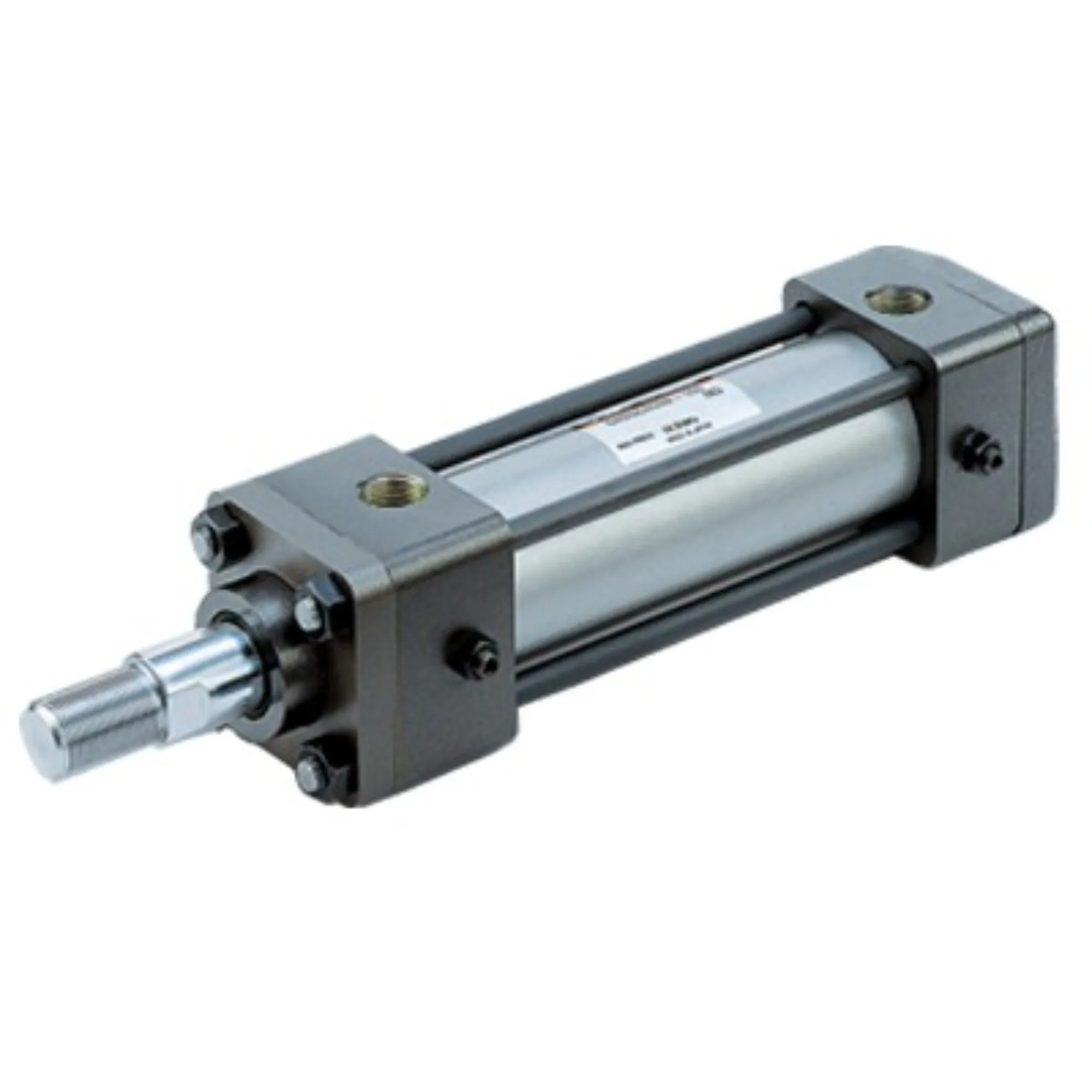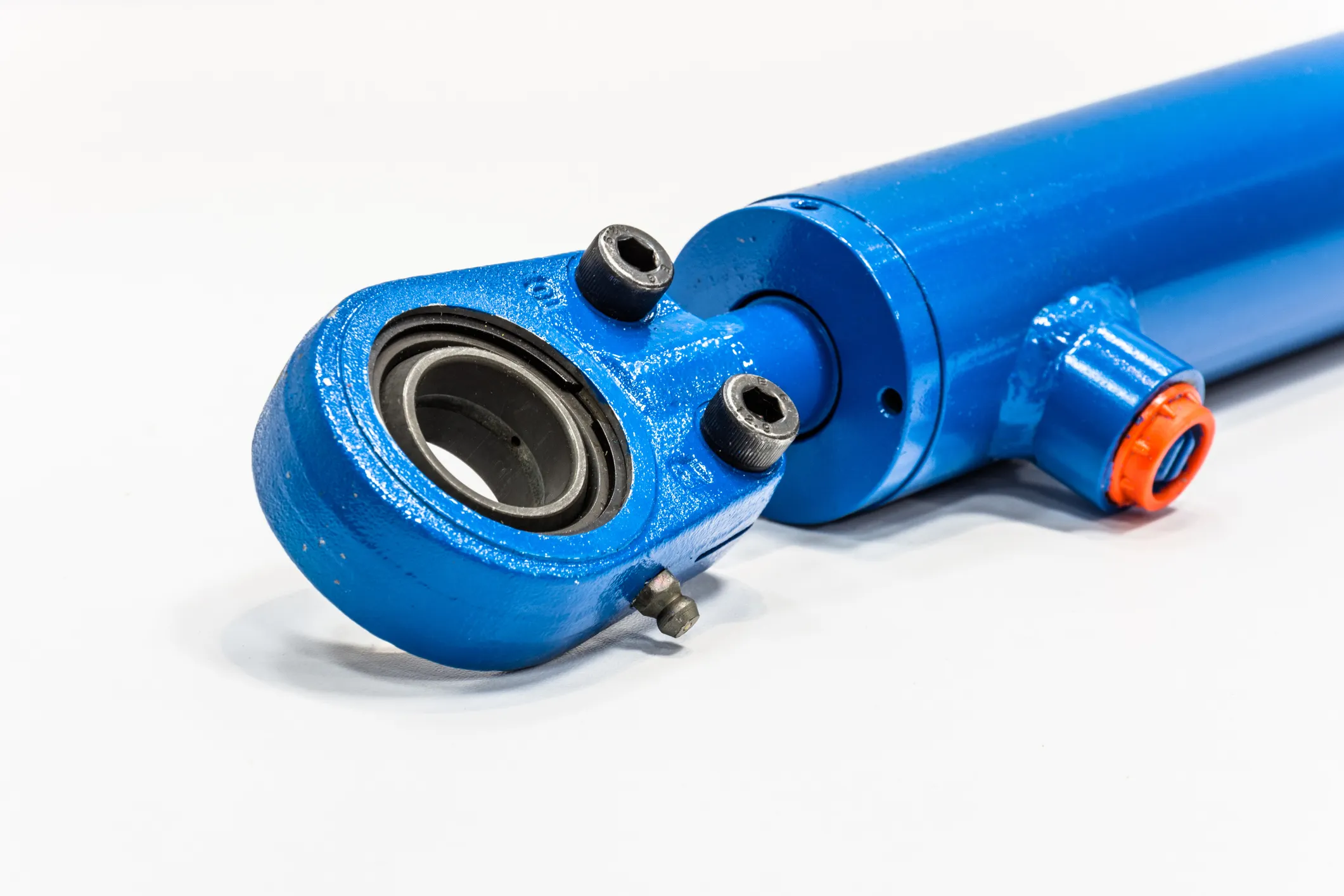The Versatile World of Industrial Hydraulic Cylinder Applications In Replacement
Understanding Hydraulic Cylinders
Industrial hydraulic cylinders play a crucial role in various industries, serving as essential components in machinery and equipment. These hydraulic cylinders are designed to convert fluid power into mechanical force, providing linear motion and control in a wide range of applications. The key components of a hydraulic cylinder include a cylinder barrel, piston, piston rod, seals, and an end cap. These components work together to create a hydraulic system that can generate significant force and movement.
Principle of Hydraulic Cylinder Operation
Hydraulic cylinders operate based on the principle of Pascal’s Law, which states that pressure applied to a confined fluid is transmitted equally in all directions. When hydraulic fluid is pumped into the cylinder, it creates pressure that acts on the piston, causing it to move and generate force. This force can be used to lift heavy loads, move machinery, or perform other tasks requiring precise control and power.
Types of Hydraulic Cylinders
There are several types of hydraulic cylinders commonly used in industrial applications, each with unique features and functionalities:
Single Acting Cylinders:
Single acting cylinders exert force in one direction only, typically extending using hydraulic pressure and retracting using external forces like gravity or springs. They are often used in applications where a load needs to be lifted or moved in a single direction.
Double Acting Cylinders:
Double acting cylinders can exert force in both directions, extending and retracting using hydraulic pressure. These cylinders are versatile and used in applications requiring precise control over the movement of loads.
Telescopic Cylinders:
Telescopic cylinders consist of multiple nested stages that can extend to different lengths, providing a long stroke in a compact design. They are commonly used in applications where space is limited but a long stroke is required.
Differential Cylinders:
Differential cylinders use the difference in surface area between two pistons to generate force. They are used in applications where a high force output is required, such as in heavy lifting equipment or hydraulic presses.
Advantages of Industrial Hydraulic Cylinders
Industrial hydraulic cylinders offer a range of advantages, including:
- High force output for heavy-duty applications
- Precise control over movement and positioning
- Compact design for space-constrained environments
- Durable construction for long service life
- Efficient energy utilization for cost-effective operation
Applications of Hydraulic Cylinders
Industrial hydraulic cylinders are widely used in various industries, including:

Manufacturing:
In manufacturing, hydraulic cylinders are used in assembly lines, robotics, and material handling equipment to facilitate production processes and ensure efficient operation.
Construction:
In construction, hydraulic cylinders are essential components in heavy machinery like excavators, cranes, and bulldozers, providing the force needed to lift and move heavy materials on construction sites.
Mining:
In mining operations, hydraulic cylinders are used in equipment like hydraulic shovels, drills, and crushers to extract and process minerals efficiently and safely.
Agriculture:
In agriculture, hydraulic cylinders are used in tractors, harvesters, and irrigation systems to perform tasks like plowing, planting, and watering crops with precision and efficiency.
Other Industrial Sectors:
Hydraulic cylinders are also utilized in industries such as aerospace, automotive, and marine to provide reliable power and control in a wide range of applications.
Choosing the Right Hydraulic Cylinder
When selecting an industrial hydraulic cylinder for a specific application, factors like load capacity, stroke length, bore size, and operating conditions should be considered. Matching the performance of the cylinder to the requirements of the application is crucial to ensure optimal functionality and longevity.
Maintenance and Care of Hydraulic Cylinders
Regular maintenance of industrial hydraulic cylinders is essential to ensure their reliable performance and longevity. Proper inspection, lubrication, and cleaning practices can help prevent issues and maximize the service life of the cylinders.
Installation and Maintenance Tasks
Common maintenance tasks for industrial hydraulic cylinders include:
Cleaning:
Regularly clean the external surfaces of the cylinder to prevent dirt and debris buildup that can affect performance and cause premature wear.
Lubrication:
Apply appropriate lubricants to the moving parts of the cylinder to reduce friction and wear, ensuring smooth operation and extended service life.
Checking Wear:
Inspect the seals, rods, and other components of the cylinder for signs of wear or damage, and replace any worn parts to prevent leaks and maintain optimal performance.
Fault Diagnosis and Troubleshooting
In the event of hydraulic cylinder issues, diagnosing common problems like leaks, seal damage, and piston misalignment is important. By identifying and resolving these issues promptly, downtime can be minimized, and the performance of the cylinder optimized.
Preventive Measures and Optimization
Implementing preventive measures like regular inspections, seal replacements, and proper lubrication can help minimize potential problems and optimize the performance of industrial hydraulic cylinders. By proactively addressing maintenance needs, the reliability and efficiency of the cylinders can be enhanced.

Choosing the Right Hydraulic Cylinder
Exploring factors like load requirements, stroke length, and operating conditions is essential when selecting an industrial hydraulic cylinder. By considering these key factors, the most suitable cylinder can be chosen to meet the specific needs of the application.
Long-Tail SEO Articles
Three long-tail SEO articles related to industrial hydraulic cylinders:
1. The Impact of Telescopic Hydraulic Cylinders in Construction
Telescopic hydraulic cylinders play a crucial role in construction equipment, providing extended reach and precise control for various tasks on the job site. Their innovative design and functionality make them an essential component in modern construction machinery.
2. Enhancing Efficiency with Double Acting Hydraulic Cylinders in Manufacturing
Double acting hydraulic cylinders offer versatile performance and reliable operation in manufacturing applications, allowing for precise movement and control in assembly lines, robotics, and other industrial processes. Their dual-action design makes them a preferred choice for enhancing efficiency and productivity in manufacturing operations.
3. Maximizing Performance with Customized Hydraulic Cylinder Solutions
Customized hydraulic cylinder solutions cater to specific requirements and performance needs in industrial applications, offering tailored designs and functionalities to optimize performance and efficiency. By choosing customized hydraulic cylinders, companies can achieve enhanced productivity and reliability in their operations.
Our Company Overview
We are a leading hydraulic cylinder replacement manufacturer, offering a comprehensive product line and customized services to meet the diverse needs of our customers. With international certifications, state-of-the-art production equipment, and dedicated after-sales service, we are committed to providing high-quality hydraulic cylinder solutions for domestic and international markets.
Author: lyl
